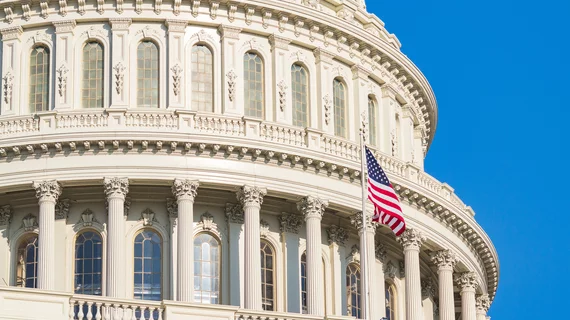Bill aims to protect front-line healthcare workers from coronavirus, avert ‘public health disaster’
U.S. lawmakers have unveiled legislation aimed at better protecting front-line healthcare workers from contracting the coronavirus.
Sen. Tammy Duckworth, D-Ill., on Thursday introduced the COVID-19 Healthcare Worker Protection Act, following similar action in the House March 9. The measure would task the Occupational Safety and Health Administration with crafting emergency standards to help protect clinicians who are at increased risk of contracting the virus.
“Our nation’s healthcare workers are on the front lines as we work to defend Americans from COVID-19,” Duckworth said in a March 12 statement. “They deserve to be as protected as they can be as they take on greater risks to keep the rest of us safe, and this legislation will help ensure they are.”
Duckworth noted that the OSHA Act of 1970 grants the agency authority to issue such emergency standards when workers “are at a grave risk of danger from a new hazard.” If passed, her bill would give OSHA 30 days to issue such a standard.
Other senators backing the bill include recent presidential hopefuls Bernard Sanders, I-Vt., Cory Booker, D-N.J., and Elizabeth Warren, D-Mass. The House bill, meanwhile, was introduced by Rep. Bobby Scott, D-Va., as part of a larger package to address the pandemic.
In his own announcement, Scott noted that while the CDC has already issued recommendations to protect healthcare workers, the guidelines are nonbinding. Passing their legislation would give OSHA an enforcement mechanism, he said.
“As we enter into what is likely to be the greatest infectious disease crisis this country has faced in over a century, it is in the national interest that OSHA be on the forefront of protecting workers essential to the country’s healthcare system,” Scott wrote in a letter to Labor Secretary Eugene Scalia earlier this month. “If healthcare workers are quarantined in large numbers, or get ill or die, or fear coming to work due to the risks, it’s not just a personal or workplace problem, it’s a national public health disaster.”

